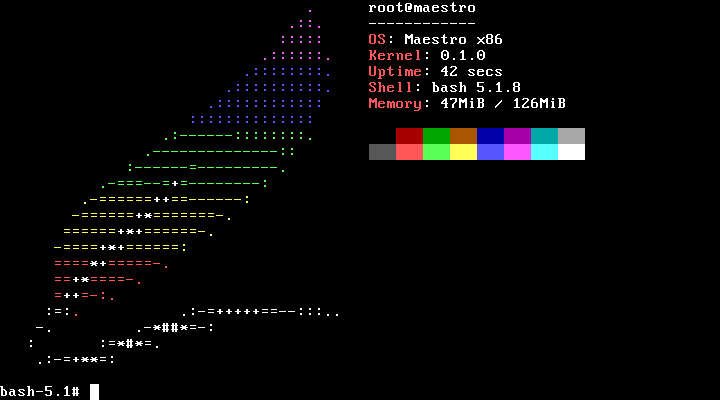Maestro is a lightweight Unix-like kernel written in Rust.
The goal is to provide a lightweight operating system able to use the safety features of the Rust language to be reliable.
This project is still in early stage development, thus it is highly unstable and misses a lot of features. Do not use it in production!
To stay updated with the project, follow the blog!
Neofetch and bash running on the OS.
The following features are currently implemented (non-exhaustive):
- Terminal with VGA text mode and PS/2 keyboard (with forward compatibility with USB handled by the motherboard's firmware)
- Partial support of ANSI escape codes
- Memory allocation/virtual memory
- Buddy allocator
- Internal memory allocator, with similarities with dlmalloc's implementation, working on top of the buddy allocator
- Processes and scheduler (round-robin)
- POSIX signals
- PCI devices enumeration
- Files:
- Time/Clock (RTC)
- Linux system calls (roughly 30% are currently implemented)
- Kernel modules
- ELF programs
This repository is not a full operating system in itself but only the kernel.
You can either:
- Use the installer to build a full operating system from an ISO file
- Build the OS by hand. For this, you can check the kernel's book
The OS can then be run by a virtual machine such a QEMU or VirtualBox, or on a physical machine.
To build and/or run the OS, cd into the kernel's crate:
cd kernel/Then follow the instructions in README.md
The kernel's book contains general information on how to use the kernel.
The book can be built using mdbook, with the command:
mdbook build doc/Then, it can be accessed at doc/book/index.html.






